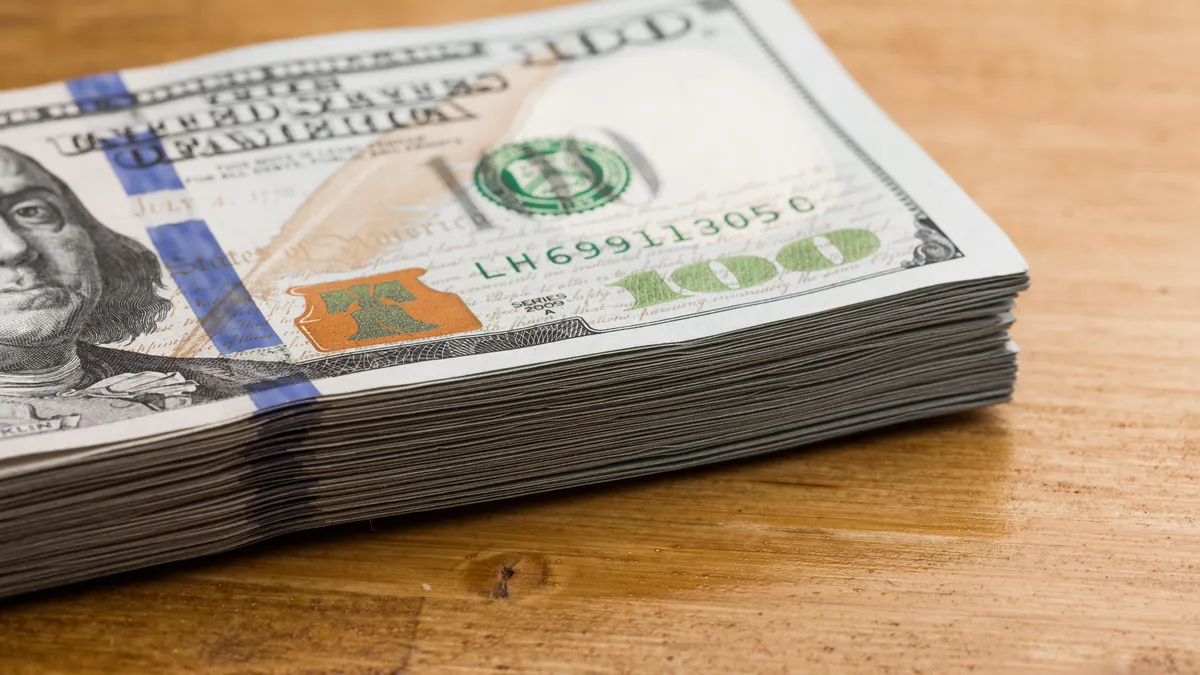Dive Brief:
- Inflation cooled last month after rising in February and the gauge of so-called core prices excluding food and energy increased at a 2.8% annual rate in the lowest 12-month gain in four years, the Bureau of Labor Statistics said Thursday.
- Amid mounting concerns that a trade war will stoke price pressures, the Consumer Price Index fell 0.1 percentage point in March for a 2.4% annual gain. A 6.3% decline in gas prices offset increases in the cost for electricity and natural gas. The prices for medical care, used cars and trucks, and transportation also declined.
- “Expect inflation to pick up in the coming months,” Jason Furman, a Harvard University economics professor and chair of the Council of Economic Advisers in the Obama administration, said on X. The inflationary impact from tariffs that the Trump administration enacted this month will take time to emerge in the data, he said.
Dive Insight:
Several private- and public-sector economists have recently warned that tariffs imposed by the Trump administration on imports from virtually every U.S. trading partner risk boosting inflation and slowing economic growth.
Sixty-three percent of corporate economists expect that the U.S. economy during the next 12 months will slump into a period of “stagflation,” Wolters Kluwer found in a monthly survey.
“The widely held view is that the tariff increases will raise inflation and slow economic growth, not just in the U.S. but across the globe,” Haver Analytics Senior Economist Sandy Batten said in a statement.
Economists at companies ranging from Wells Fargo to Ford Motor Co. and Goldman Sachs to Eaton Corp. marked down their estimate for economic growth this year, on average, to 1.4% from 2% last month, Wolters Kluwer said Thursday.
The economists, on average, expect the CPI to rise 3.3% this year, well above the Federal Reserve’s 2% target, Wolters Kluwer said.
“Higher-than-expected tariffs would very likely raise both unemployment and inflation,” Lorie Logan, president of the Federal Reserve Bank of Dallas, said Thursday after release of the CPI data.
“A sustained burst of inflation could lead households and businesses to expect further price increases, especially following the persistently elevated inflation in recent years,” she said in a speech.
The tariffs as currently enacted will probably push up inflation by 1 percentage point, according to Pantheon Macroeconomics.
“In a world with no tariffs, inflation would be clearly falling this year,” Samuel Tombs, chief economist at Pantheon, said Thursday during a webcast.
“There’s no fundamental underlying inflation problem in the U.S. anymore,” he said, adding “we don’t see extremely high rates of inflation over the next year or so.”
Chicago Fed President Austan Goolsbee on Thursday said that much of the recent data on economic growth, inflation and unemployment have been favorable. “The hard data are still solid,” he said.
At the same time, he noted “a lot of anxiety” over import duties among executives in the Fed district under his purview encompassing much of the Midwest.
“There’s a fundamental fear that we might be on the edge of going back to conditions like 2021 or 2022, where inflation is raging out of control and costs are on everyone’s mind,” Goolsbee said in a speech to the Economic Club of New York.
Imported goods make up just 11% of U.S. gross domestic product, limiting the measurable harm from the new tariff policy without accounting for retaliation, Goolsbee said.
Still, “if people start freaking out, the freak out channel is a well-recognized negative impact of any policy,” he said.











